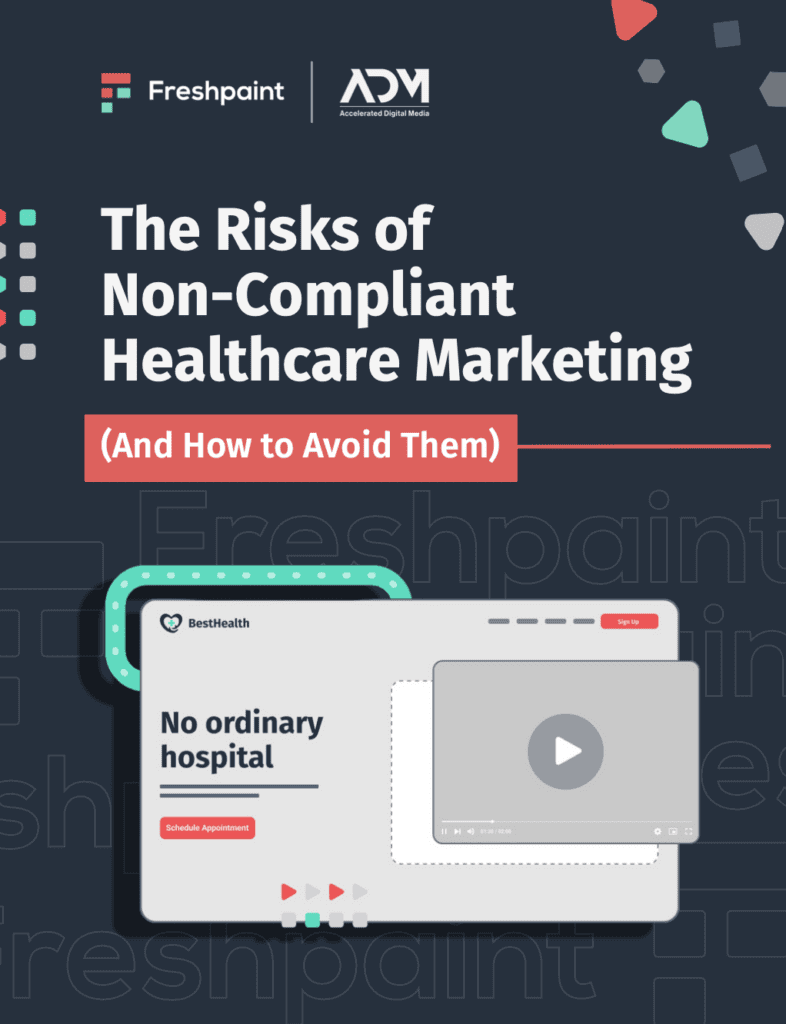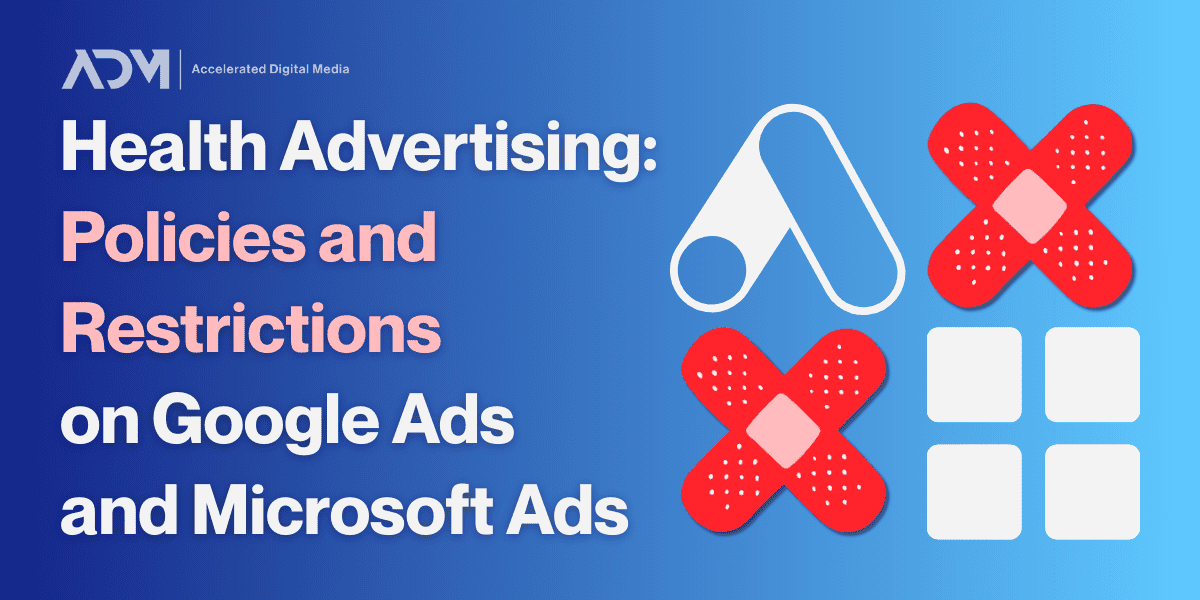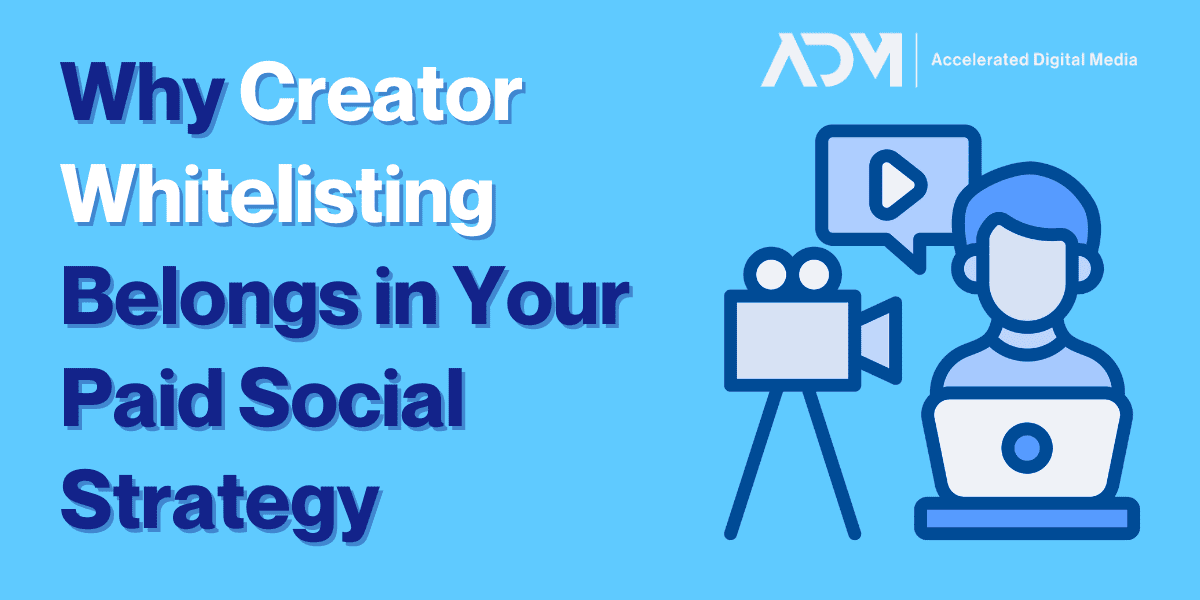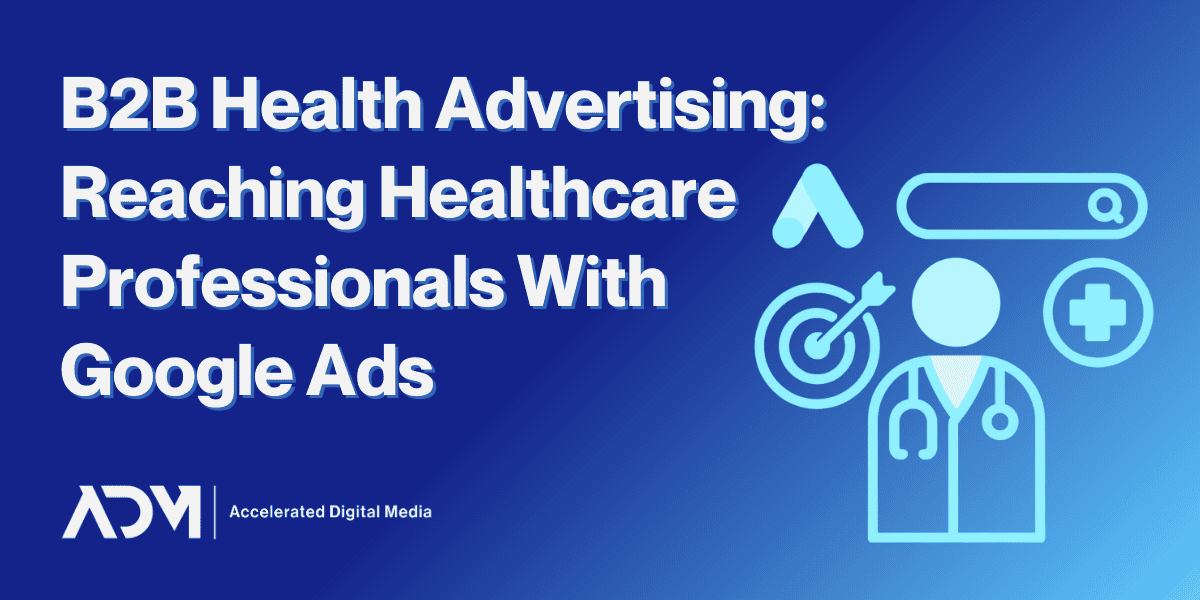Healthcare brands are wise to take advantage of all that digital marketing can offer them—as long as they stay within the rules. Digital ad platforms have plenty of policies governing how brands may use their services. Because health and wellness advertising is particularly sensitive and complicated, there are numerous rules specific to these verticals.
To run search engine marketing (SEM) campaigns on Google Ads and Microsoft Ads, healthcare brands need to operate in accordance with all of these platform policies. Otherwise, they risk ad disapprovals and even account suspensions—which can cause grievous disruptions to their growth strategies.
Jump to Section:
- What’s New in SEM Healthcare Advertising Policy?
- Google Ads Health Advertising Policies
- Microsoft Ads Health Policies
- Platform-Compliant Healthcare Advertising
What’s New in SEM Healthcare Advertising Policy?
Unlike social media platforms, which released a raft of new updates to their healthcare ad policies, neither Google Ads nor Microsoft Ads has made substantial changes to their healthcare advertising rules so far in 2025. Still, these policies are subject to change at any time—so it’s always worth keeping tabs on their respective news pages.
That doesn’t mean other SEM policy updates haven’t had downstream effects on healthcare advertising. Google, for example, recently updated the functionality of Google Tags in ways that may create new compliance issues for some healthcare websites. While not direct policy, that change forces health brands to be smarter about where they place tracking tags—or remove them entirely.
Google Ads Health Advertising Policies
Personal Advertising Policy/Health in Personalized Advertising
Google’s Personalized Advertising policy is a major consideration for health brands that use Google Ads. This rule is intended to prevent brands from advertising sensitive topics to specific users in ways that feel invasive and diminish user experience.
This rule addresses health specifically in the Health in Personalized Advertising section, which forbids advertisers from using Google Ads to deliver personalized content related to:
- Physical or mental health conditions
- Products, services, or treatments intended to manage chronic health conditions
- Health problems “associated with intimate body parts or functions, which includes genital, bowel, or urinary health”
- Invasive procedures including cosmetic surgery
- Disabilities
It’s important to note that, even though it’s called the “Personalized” advertising policy, these rules also apply to targeting potential caretakers who may be responsible for someone a covered health issue.
The Personalized Advertising Policy, outside of its Health subsection, also forbids advertising that:
- Highlights personal trauma or abuse
- Creates feelings of negativity through things like body shaming or suggested negative outcomes if a user doesn’t take a certain action
These last two are also key for health providers. Even brands that offer counseling services to address past trauma—or deal in weight-management solutions meant to make people healthier—must find ways to advertise these services without violating the stated policy.
EBOOK: THE RISKS OF NON-COMPLIANT HEALTH MARKETING
This eBook examines the stakes that healthcare companies face in their digital marketing efforts and offers valuable guidance on how to run compliant advertising.

Healthcare and Medicines Policy
Google’s Healthcare and Medicines policy dictates what health and drug information can and can’t be advertised and what certifications a brand needs in order to advertise certain products and services. It covers a number of relevant areas, like:
Certifications
- Google requires online pharmacies, telemedicine providers, and addiction treatment services to apply for and receive LegitScript certification in order to advertise on the platform
- Google requires insurers to be certified with G2 in order to run Google Ads
Clinical Trial Advertising, Experimental Treatments, and Gene Therapies
- Google forbids clinical trial recruitment ads in most countries, but the US, UK, and Canada are not among them.
- Google forbids promotion of “speculative and/or experimental medical treatments” as well as cell or gene therapies, with limited exceptions
Prescription Drug Terms
- Google again limits the advertising of prescription drugs in most countries, but not the US, Canada, and others provided they have proper certifications
- Businesses can use the drug terms in their ads and landing pages without certification, but may not bid on the terms if they don’t have it
- The list of monitored drug terms can be found here
- Google also provides a list of unapproved substances, most of which would not be a concern for legitimate health providers
It’s important to note that, in late 2023, Google updated the language in its Healthcare and Medicines policy to better clarify what types of online health providers would be subject to these rules
Sexual Health and Wellness Policy
Google Ads also has distinct policies regarding the promotion of sexual health products on YouTube and the Google Display Network. It relates to other Google Ads content policies and applies to everything from traditionally over-the-counter products like lubricants up to prescription medications.
Sexual health products must be:
- Targeted only to users 18 years of age or older
- Not promoted based on themes of sexual pleasure or enhancement
- Not be advertised in sexually suggestive ways
- Advertised in accordance with local and country-specific laws
This policy also includes rules against advertising certain products outside of the United States and Canada.
Microsoft Ads Health Policies
Though not nearly as prominent of a paid search platform as Google Ads, Microsoft Ads is still an excellent SEM service that many health brands may be interested in using to reach their unique audience. Like Google Ads, however, Microsoft Ads also has specific policy guidance for health brands.
Restricted Content: Pharmacy and healthcare products and services
Microsoft has an overarching health advertising page that lays out specific restrictions for each country around the world. Its policies are generally more restrictive than Google’s. For instance, while Google will allow advertisers in some countries (including the US) to advertise for clinical trial recruitment, that’s entirely outlawed on Microsoft Ads.
Likewise, the language is broad elsewhere. Microsoft’s policy states simply that “Ads related to sensitive health conditions targeting consumers are not allowed.”
As of 2025, other noteworthy Microsoft Ads health policy takeaways include:
- Like Google, Microsoft requires pharmaceutical sellers must receive LegitScript certification, although they will also accept accreditation from the National Association Boards of Pharmacy (NABP)
- Also like Google, brands are not allowed to advertise in ways that create the impression of direct health targeting—using language like “your condition” or “your symptoms.”
- Claims and content of weight loss products and services are heavily restricted
- Prophylactic advertising is widely forbidden
- Like Google, Microsoft also has a list of disapproved healthcare products and supplements.
For a full understanding of how Microsoft’s health advertising policies differ from Googles, it is important to review this policy on the Microsoft Ads site.
Platform-Compliant Healthcare Advertising
With so many legal and platform-based regulations in place for health advertisers, it’s vital to do your diligence and ensure you are not creating ad content that is liable to be disapproved. Remember, this is not a comprehensive list, and it’s important to review all available policies before launching your digital ads program.
For help building a vibrant and effective health advertising strategy for your brand, consider partnering with an expert healthcare marketing agency that knows the ins and outs of these policies and can resolve errant disapprovals that occasionally sometimes occur in this nuanced field.
DISCLAIMER
This content is for informational use only and is based on analysis of current platform policies related to health advertising. These policies are subject to change following this publication date. If you require legal advice about any of the matters discussed above, ADM recommends seeking a healthcare privacy attorney.




